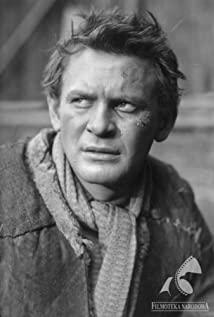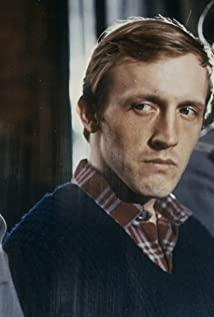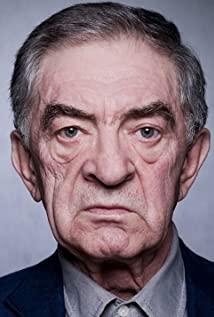Director: Kislovsky
Text: Roger Albert Translation: Joshua The
Ten Commandments, Ten Movies.
In his smoky little room in Warsaw, Kislovsky sat for several months and wrote the Ten Commandments script with a lawyer he knew when the Solidarity trade union decided the case in the early 1980s. Kislovsky remembered that Krzysztof Piswitz did not know how to write, but he was very talkative. They can talk about the turmoil in Poland for hours on end. In 1985, they also created the "Never Ending" screenplay together, which told three stories related to the laws of war. After the film was made, the authorities believed that such a story lacked sympathy, the opposition party regarded it as a product of compromise, and the church criticized its immorality. In the midst of controversy and critical voice in a rainy day and the two ran into each other collaborators, who Piesiewicz probably not enough trouble enough, shouted, "Someone should make a movie based on the Ten Commandments."
They Produced ten films for Polish television, one hour for each minister. The series went live in the late 1980s and was screened at the Venice Film Festival and other film festivals, and the results were widely praised. But a film of this length is not suitable for screening in a movie theater (does it allow the audience to sit for ten consecutive hours, or five times to watch two-hour clips each time?). "The Ten Commandments" has never been shown in theaters in the United States, and its video tapes are not available here.
A few years ago, I gave a class to study the "Ten Commandments" for a class. At that time, I used a video tape bought from the UK. It turned out that we wasted a lot of time in order to match the film with the Ten Commandments. There is no one-to-one correspondence. Some movies involve more than one commandment, while others involve the entire moral system implied by the Ten Commandments. There are no simple illustrations of the precepts, only stories that happen when real people face the complexity of practical problems.
The whole story involves several characters living in the same high-rise apartment building in Warsaw. During the viewing process, we will gradually become familiar with the structure of these apartments, and sometimes even see characters in one story in another story—for example, when they take the same elevator. There is a young man who appears in all eight of them. He is a serious bystander who never said a word, but sometimes turns his eyes with the audience and shows a sad look. I thought that maybe he represents Christ, but Kislovsky said in an essay about this series, "I don't know who he is, he is just a guy who came to look at us and watch our lives. He is obviously not very satisfied with us." Directors have never tried to limit the meaning of the images they create. This has long been known. I really like Annette Insdorf’s views in her valuable book "Double Life, Two Choices" about Kislovsky; she compares this bystander to Wim • The angels in Wenders' "Under the Sphere of Berlin", they "stare purely"-in this way "record the stupidity and pain of human beings, but they cannot change the life course they have witnessed." These ten movies are not philosophical generalizations, but personally related stories that can immediately involve us in them; when watching some of them, I hardly felt any emotions (I hardly stirred during some of them). After watching this series, Stanley Kubrick noticed that Kislovsky and Piswitz “have little ability to dramatize their ideas except to talk about their ideas.” It is true. These characters do not talk about specific precepts or moral events at any moment. Instead, they are engrossed in dealing with ethical challenges in real life.
Let us recall the heroine in the second commandment—she asked a doctor about the life and death of her sick husband. The doctor—a very bad-tempered and lonely person, with a cruel indifference towards her; he refused to play the role of God. The woman explained why she needed to know the result: She broke another man's child, and her husband was barren. If he is still alive, she will have to have an abortion. If he is dying, she will give birth to the child.
A cliché story in a soap opera. But here it has become a moral problem. In the end, the movie can only "solve" it by flashing back to the doctor's own painful past experience-even this "solution" is only indirect, because things are not what everyone expected. Develop like that. Kieslowski roots the issues in very specific performances by the doctor and the woman (Kieslowski roots the issues in very specific performances by the doctor and the woman) (Alexander Badini and Christina). • Yang Da), and then a wonderful and subtle thing happened: the movie is about their independent moral challenges, not the same problem that traps them together.
Or let’s take a look at the moral transformation in the “Sixth Commandment,” which tells a lonely teenager who used a binoculars to spy on the sex life of a woman who lives across the street. That woman seems to have an indifferent attitude towards morality, but she is also very lonely. He thought he was in love with her. Since he works as a clerk at the post office, they often see each other. He can also see her every morning when he goes to deliver milk. Almost inevitably, she discovered that he was a peeker (and also an anonymous caller, a prankster), but we could hardly guess what she would do next.
Like the sharp but plausible dramatic twist that Kislovsky likes to use in all his movies, the woman invited the teenager to her apartment. Then he was full of ugliness due to lack of sexual experience. This is only the midpoint of their moral struggle; for them, the subsequent exchange of roles between them as sinners and victims shows the back and forth changes in the right and wrong ideas that this has brought about. Their relationship makes "situational ethics" seem volatile and confusing.
Kislowski deliberately avoided talking about the daily practical aspects of Polish life, because he thought all of this was a distraction—the regulations, laws, shortages, authorities. He only deals with the general aspects of daily life. In "The First Commandment"-I think it is the saddest part of all his stories, he talked about the love between a clever father and his genius son. Together, they used a computer to calculate the degree of freezing in a nearby pond so that they knew when the ice layer was so thick that they could safely skate on it. However, ponds and currents are not always easy to calculate. Perhaps computers are a false god.
None of these films is a simple proof of a moral event that is black and white. "The Fifth Commandment" tells the story of a murderer who seems to be beyond morals. Understanding him does not mean forgiving him. This story also focused on his defense attorney, a young man who dealt with a case for the first time, fiercely opposed to the death penalty. The "Ninth Commandment" tells that a man discovers his wife has an affair and secretly monitors them. He overheard that she was breaking up with her lover-and then she found her husband hiding aside. She did one wrong thing (to cheat) and one right thing (to end it); and his surveillance was to distrust her-so things went into a dead end (and then there is an outcome where pure chance almost leads to a death), this can be avoided as long as either of them remains loyal.
In the end you discover that the Ten Commandments do not work like science but like art; they instruct how to paint a valuable portrait of our lives. When Kislovsky and Piswitz wrote the script, they intended to have a different director for each film. But Kislovsky was unwilling to give up them. He directed ten films by himself, each of which had a different photographer to shoot, so that the visual style would not be repeated. The settings are almost the same: the gloomy exterior scenes, mostly in winter, small apartments, offices. The faces are where the life of the films resides.
No character is drawn into the simple struggles and struggles of Hollywood melodramas. They are all adults, largely independent of organized religion, facing various situations in their personal lives that require moral choices. You shouldn't watch these movies all at once, but watch one at a time. If you are lucky enough to find someone to communicate with, talk to them about each of these movies and study yourself at the same time. Or if you are alone, discuss them with yourself, just like most of the characters in Kislovsky movies.
View more about Dekalog reviews











